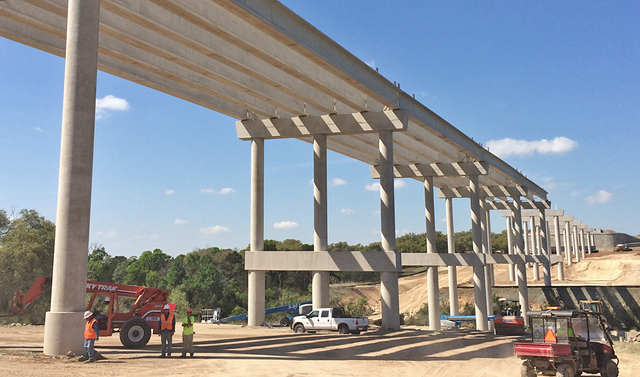What Makes Bridge Construction Concrete Ideal for Long-Span Bridges?

Bridge construction concrete has been a cornerstone of infrastructure development for centuries, thanks to its unmatched versatility and durability. When it comes to long-span bridges that traverse vast distances over challenging terrains, concrete stands out as the material of choice. Its ability to withstand significant stresses while maintaining structural integrity makes it indispensable for such demanding projects. Engineers and designers alike rely on bridge construction concrete to create safe, enduring, and visually impressive bridges.
Strong and Durable Properties of Concrete
The strength and durability of bridge construction concrete are among its most compelling advantages. It can endure immense loads and resist the daily wear and tear associated with heavy traffic and environmental challenges. When reinforced, concrete achieves even greater tensile strength, enabling it to handle the intense forces of compression, tension, and bending that long-span bridges encounter. This resilience ensures the stability and safety of the structure over time. Additionally, the material's resistance to weathering, corrosion, and environmental degradation further underscores its suitability for bridge construction.
Flexibility in Design and Structural Integrity
Bridge construction concrete offers unparalleled flexibility in design, allowing engineers to create complex and innovative structures. Whether designing cable-stayed, suspension, or arch bridges, concrete’s adaptability ensures that unique architectural and structural requirements are met. This flexibility is particularly valuable for long-span bridges that must navigate specific environmental challenges, such as wind dynamics or expansive waterways. The ability to mold bridge construction concrete into custom shapes and sizes ensures optimal performance while enhancing the bridge’s aesthetic appeal.
Resistance to Environmental Conditions
One of the standout features of concrete bridge construction is its ability to resist harsh environmental conditions. Long-span bridges often endure exposure to extreme heat, cold, saltwater, and other potentially damaging elements. Concrete's natural resistance to such factors, including its ability to withstand freeze-thaw cycles, makes it an ideal material for enduring these challenges. For bridges situated in coastal areas, where saltwater corrosion is a concern, Bridge Construction Concrete provides a reliable and long-lasting solution. This durability reduces maintenance needs, saving time and resources over the bridge’s lifespan.
Cost-Effectiveness and Availability
In large-scale infrastructure projects, cost is a critical consideration. Bridge construction concrete is widely regarded as a cost-effective material due to its affordability and availability. Its local sourcing potential reduces transportation costs, and the ease of production further enhances its economic appeal. Concrete formwork and placement methods also enable faster construction times, which can be vital in meeting project deadlines. For long-span bridges that require both performance and affordability, bridge construction concrete consistently delivers excellent value.
Conclusion
The exceptional qualities of concrete in bridge construction its strength, durability, design flexibility, environmental resistance, cost-effectiveness, and sustainability make it the ideal material for long-span bridge projects. As infrastructure demands grow and evolve, this reliable material continues to provide the foundation for safe, enduring, and visually striking bridges. With its proven effectiveness in meeting the challenges of long-span bridge construction, bridge construction concrete is poised to remain a cornerstone of engineering innovation for years to come.